How to Reduce Dust With Forced Air Heat
As a homeowner, you might feel like the dust is impossible to avoid. It seems to be everywhere in your home and sticks to everything! You can’t even take care of it with a broom because the dust flies right back up into the air again. But there are some things you can do to reduce the amount of dust in your home by using forced air heat. In this blog post, we will talk about how to reduce dust with forced air heat.
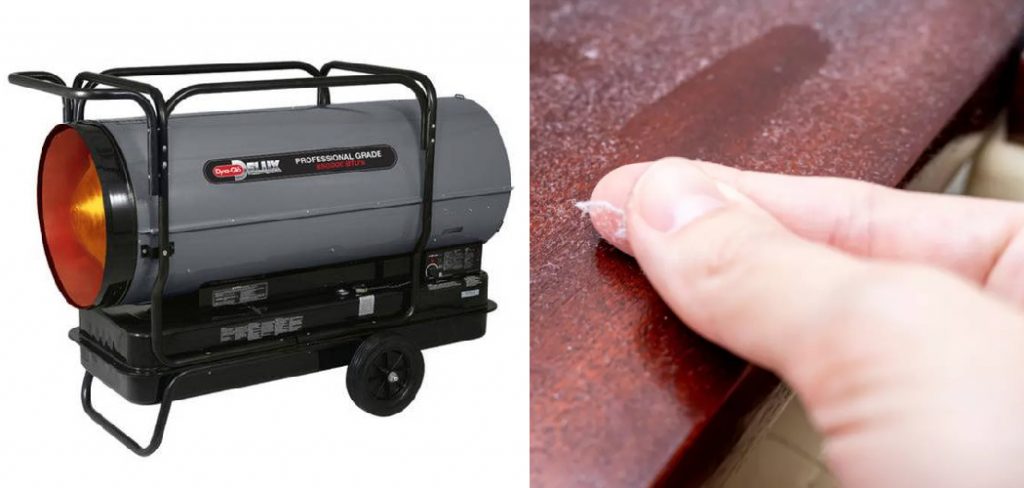
First, make sure that any vents or ducts leading outside aren’t blocked off or otherwise impeded. Then, turn on your vent fan when cooking or doing anything that produces lots of steam. Finally, use an exhaust fan for bathrooms and kitchens after cooking, so all those smells stay out of your living space! Read on to know more information!
10 Ways on How to Reduce Dust With Forced Air Heat:
1. Use a High-efficiency Air Filter:
If you want to reduce the dust in your home, one of the best things you can do is install a high-quality air filter. Be sure to choose the right size and type for your heating and cooling system, and opt for a MERV 8-rated pleated media filter for maximum efficiency. These filters can last up to three months before needing to be replaced.
2. Change Filters More Often:
If you don’t change your furnace’s air filter regularly, it will have to work harder to heat your home, which will release more particles into the air. To avoid this, check your owner’s manual to see how often your filter needs to be replaced – it may be every 30 days, or it may last up to 3 months.
3. Make Sure the Furnace is Maintained:
Schedule annual furnace maintenance to keep things in top working order and reduce wear and tear. Your heating professional will clean the blower, burner/combustion chamber, heat exchanger, and other components to remove dust build-up and maintain efficiency. A dirty furnace can release high amounts of dust into the air.
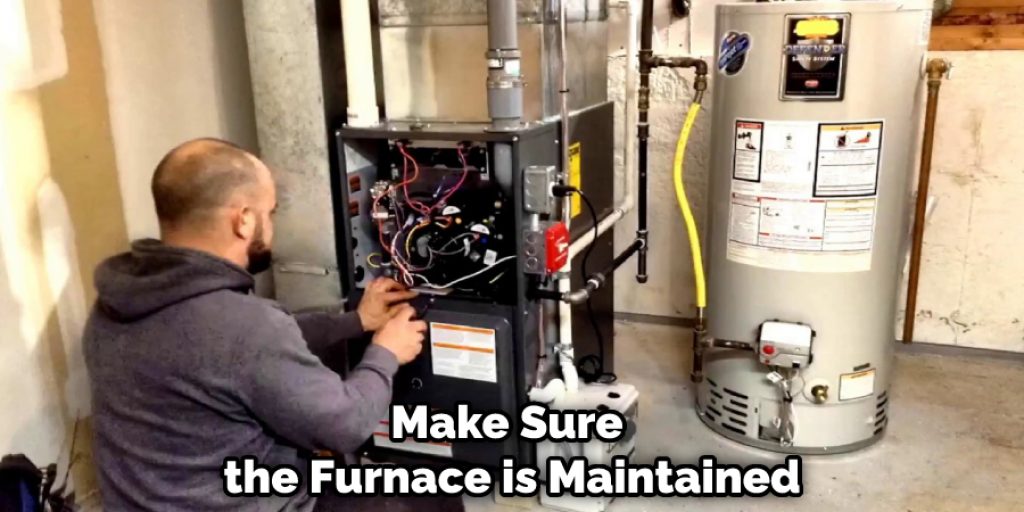
4. Clean or Change Your Air Vents:
Cleaning or changing your furnace’s air vents on a regular basis will help your forced-air system operate more efficiently by preventing dust from building up inside. If you can’t reach them, hire a professional to help. They’ll do a thorough cleaning and ensure your vents are correctly attached for a snug fit.
5. Use a Programmable Thermostat:
Operating your forced-air system at a consistent temperature all the time, whenever you’re awake or not home, will help reduce dust levels inside your house. In addition, it’s easy to install and operate with today’s wireless models that allow you to push a button or download information from the Internet.
6. Ducts Need to be Sealed:
Make sure all of your heating and cooling ducts are sealed so dust cannot get in and circulate through your house. If you have any holes or leaks, your forced air heating system will pull dust in from other house areas.
7. Use a Duct Booster Fan:
A duct booster fan can help move air more efficiently through your home, reducing dust build-up and the need for frequent filter changes. The average house with forced air needs at least one or two inlets per level to be correctly ventilated. In addition, they reduce energy costs by up to 30% since your blower motor doesn’t have to run as much.
8. Use Whole-House Air Cleaners:
A whole-home air cleaner with an electronic filter can trap and remove dust, mold spores, and other contaminants from the furnace or air conditioning system before they circulate through the house. The best way to get rid of these contaminants is to use a high-efficiency media filter with a true electronic filter.
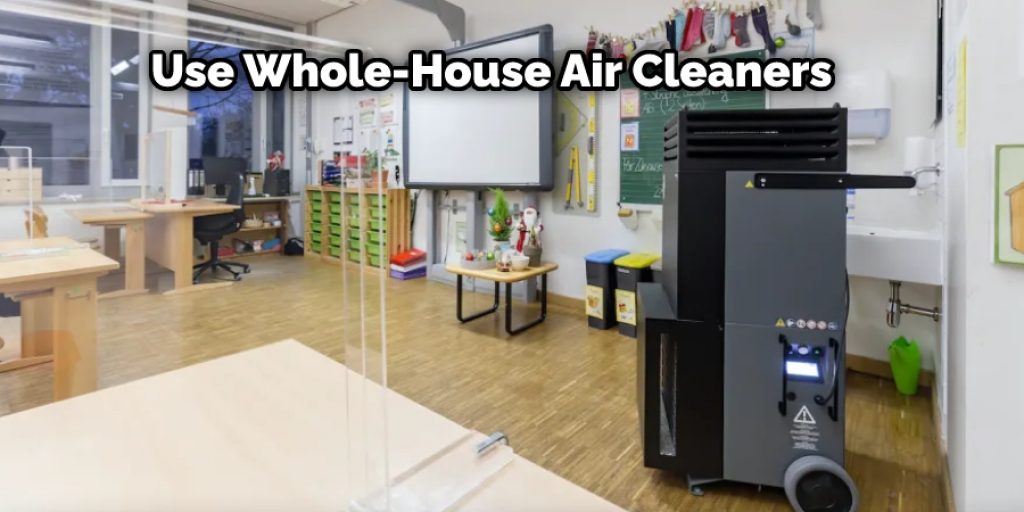
9. Prevent Moisture Build-up:
A humid environment provides more breeding ground for dust mites, plus it can also lead to interior mold growth. If you have forced-air heating and cooling, ensure your system is free from moisture with good airflow and a humidity level that stays at 20%-60%. Use indoor humidifiers or dehumidifiers as needed.
10. Get a New Furnace:
If you cannot keep your home free from dust, it’s probably time to invest in a new forced-air heating and cooling system because the one you have is not keeping your home as clean as it should. Air duct cleaning can be done by a professional or you can do it yourself if you are comfortable with the job.
A whole-home air cleaner with an electronic filter can trap and remove dust, mold spores, and other contaminants from the furnace or air conditioning system before they circulate through the house. The best way to get rid of these contaminants is to use a high-efficiency media filter with a true electronic filter.
Step by Step Guide: How to Reduce Dust With Forced Air Heat
Step 1: Before buying a new furnace, ensure that you have a proper air filter with the right size for the furnace. This will reduce the amount of airflow and effectiveness of your furnace’s blower.
Step 2: When changing your air filter, change it regularly. The more frequently you change it, the less dust will collect on the furnace.
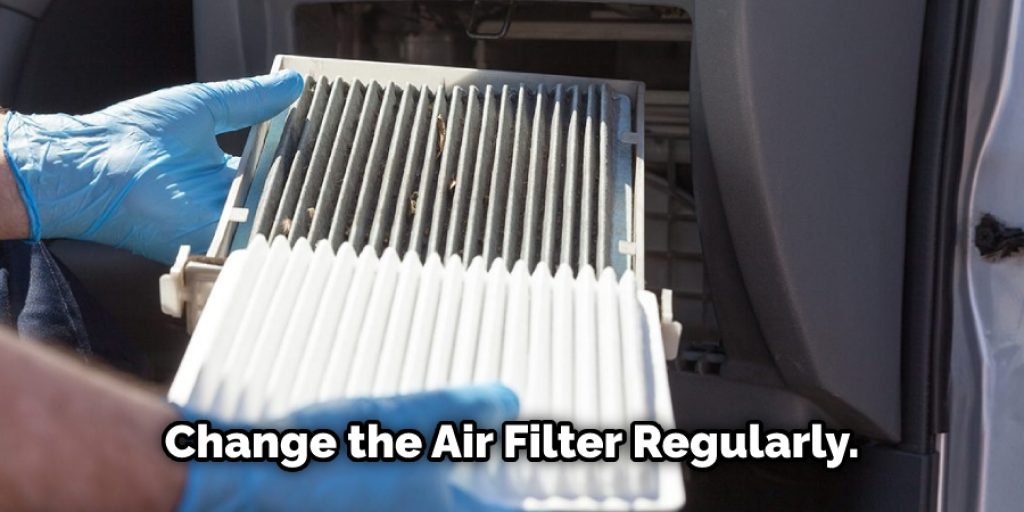
Step 3: Clean or replace your furnace’s blower regularly. The more frequently you do it, the less dust will collect on the blower and pass through it into your home’s vents.
Step 4: When you’re changing or cleaning your furnace blower, it’s important to make sure that there’s nothing blocking the flow of air or dust. If there’s something blocking the airflow, it could damage your furnace’s blower or motor. So make sure you clean the area thoroughly before you replace the filter or blower.
Step 5: Ensure that you have no leaks in your home, which would allow unfiltered air to enter your house and bypass your furnace filter. If there are any leaks, fix them as soon as possible.
Step 6: Make sure that your furnace is not in an area where any windows or doors are open, as well as no fans that might push filtered air out through the vents and into the un-filtered world outside of your home.
Step 7: Install a wall heater near an exterior wall’s vent and ensure that the vent is closed when it’s not in use. This will prevent unfiltered air from entering your home through the wall-mounted heater’s exhaust fan.
Some Tips and Advice
1. Don’t vacuum every day. The more you clean, the dirtier the air filter gets and the hotter it gets because it traps all of that extra heat inside itself. If it gets too hot, the filter can ignite or melt.
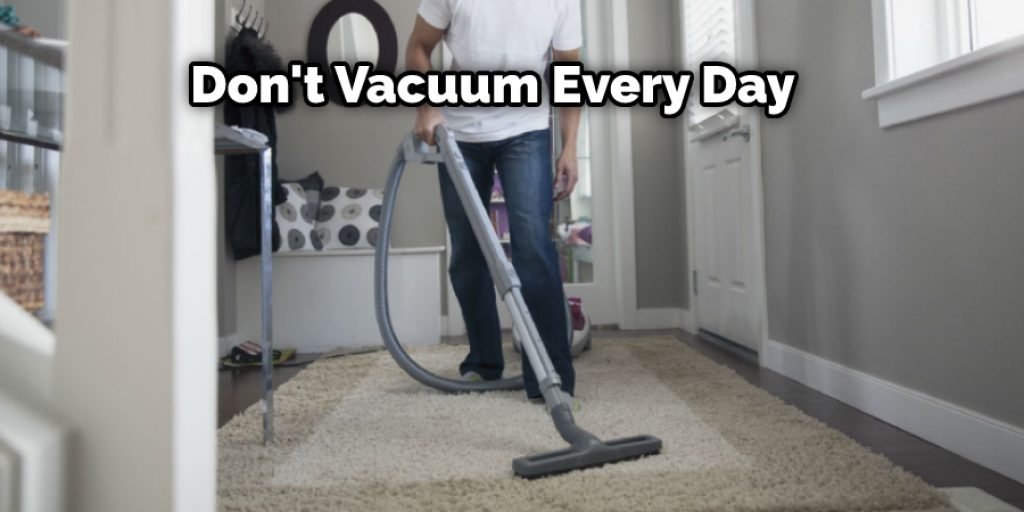
2. If you find yourself vacuum often, it might be a good idea to invest in a strong air filter. Replacing an air filter every three months can be annoying and expensive, not to mention not very environmentally friendly. The best kind of air filter is washable and reusable, which will save you money and time!
3. Invest in a good air purifier to help reduce the amount of dust your heating system has to filter through.
4. If you can, use a ceiling fan on a high setting. It will circulate the air around the room, making your forced heat less concentrated on specific areas of the room and more spread out. This will result in lower temperatures and less dust inside the house.
5. If you don’t use your forced air heating system, turn off or unplug it at night so it doesn’t heat up all day while you’re not home, only to come on when it’s 3 degrees Fahrenheit outside.
How Does Forced Air Keep Dust Down?
There’s a special kind of dust that comes from carpet, wood floors and even traps itself in your hair when you drag it out into the open. It’s commonly known as dead skin, but it also consists of tiny particles such as pollen and human hair. The particles travel in the air around you every day. Unfortunately, this dust is also carried by forced air heat.
Dust is more than just an annoying mess that needs to be cleaned up. Dust particles can trigger allergies, asthma attacks, or even make people sick with respiratory problems. This is why it’s essential to help control the dust in your home. A little bit of work will go a long way toward keeping you healthier.
Conclusion
Air filters are an important part of your heating system since they help block out any dust in the air before it reaches your lungs. If you have allergies or asthma, this is especially important. Unfortunately, one must change their filter every couple of months because the dirtier it gets, the hotter it will get, which can cause damage to the machine. This is also an expense that most people would like to avoid if they can help it.
Replacing filters every couple of months not only gets annoying, but it will eventually cost you a lot of money while doing more damage than good in some cases. Breathing in dirty air isn’t good for anybody, especially those with respiratory problems.
If you must vacuum, invest in a strong air filter. It will reduce the risk of dust particles entering your heating system and keep the temperature down as well. We hope this blog post on how to reduce dust with forced air heat has been helpful. Let us know your thoughts in the comments below!




